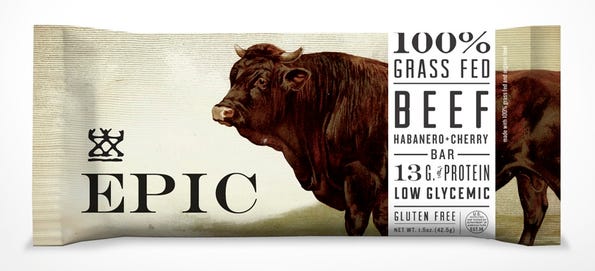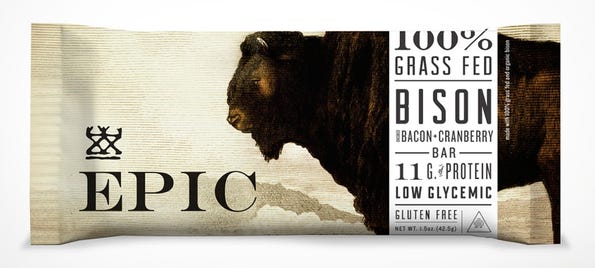How Epic Bar overcame its USDA claims struggleHow Epic Bar overcame its USDA claims struggle
Still wondering what you can or can’t say on your product? Epic Bar's Taylor Collins learned the hard way that the rules can be quirky & inconsistent.

The brainchild of two endurance athletes hungry for a convenient whole food snack, Epic Bar is a category game changer free from the highly processed ingredients found in many high-protein products. Humanely raised, 100 percent grass-fed beef, turkey and bison deliver an impressive 11 to 14 grams of clean protein in easy grab-and-go bar form.
And though the co-founders already had experience with natural nutrition bars (having previously launched plant-based protein bar line Thunderbird Energetica) they quickly found out that some products fall under different regulatory schemes because of different ingredients—which changes allowable claims.
Here, Epic Bar co-founder and CEO Taylor Collins talks about his struggle with being claims compliant and shares his motivation for when times are toughest.
What inspired you to launch Epic?
There was really a void in the market. [Co-founder] Katie [Forrest] and I are both endurance athletes and we've eaten our fair share of sugary, plant-based bars. We were looking for something different and there's nothing out there that's shelf stable, convenient, protein dense and made with whole foods. We got excited about creating a healthy bar that used grass-fed animal protein—and to do it in a way that still honored the animal. 
What one big challenge did you overcome & how?
Working with the USDA was really challenging. It's a different ballgame from working with the FDA which we were familiar with from launching Thunderbird. If you have more than 2 percent animal protein in our product, you automatically must go through the USDA.
They were very particular about what we could and could not say on our packaging. When we initially submitted our label, they were gorgeous and the text and the messaging was exactly what we wanted to communicate. The USDA completely nixed all of it. It was like really weird things like we couldn't say, "grass fed meat is shown to have more CLA and omega-3's than conventionally raised meat." That's something that is backed up by research from many universities. We essentially couldn't make any health claims related to animal protein. We got round after round of rejections. That was so frustrating because we put so much time and thought into the label and felt that it effectively communicated what we were trying to do. We would make changes and they would say, nope not good enough. We actually had to work with a consultant who had experience submitting labels to the USDA.
It's so funny because on our Thunderbird package it actually says "Shaman Blessed." You can essentially put anything you want on a package going through the FDA. We learned with the USDA that it all had to be very cut and dry. Working with them took maybe four or five months and actually delayed the launch of our product.
What kept you going when you were experiencing round after round of rejection?
Katie and I both have a background in athletics. We like the struggle. It's kind of like training. Working hard towards something is what motivates us. Giving up was never an option. And we really knew that we had created something very special. Today we still believe that it's a category changing product. We knew that we would prevail eventually. There are still days, of course, where we want to throw in the towel, but that excitement of knowing what we have and wondering what could happen in a year or two years keeps us moving forward. 
What advice do you wish someone had given you when you were starting out?
Find mentors. Rely on entrepreneurs in the CPG space. It doesn't necessarily have to be someone in your category as long as they've built a brand before and brought the product to market. We did an accelerator incubator program when we had just started in Austin. It was really helpful. It changed our lives. There's so much value in picking peoples' brains and taking them out to get a coffee or something. Even if there have been failures, you can learn from those mistakes.
I think you should always try to learn and seek out people who know way more than you. Obviously when we were starting, we didn't know what we were doing and got a lot of help along the way. That really played a big part in being able to bring the product to market and be successful thus far. Also anything with consumer packaged goods I think it's really important that people think about their branding. We’ve definitely made mistakes and learned that solid packaging is super important.
About the Author
You May Also Like



